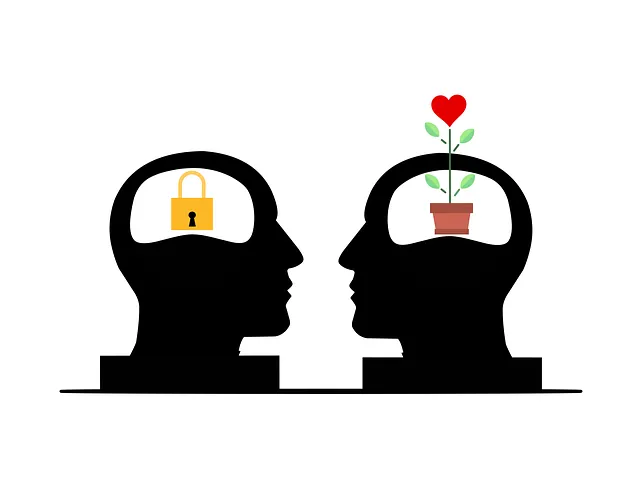The Kaiser Permanente mental health appointment center in Broomfield addresses the growing need for accessible mental wellness solutions, leveraging digital tools like apps to improve outcomes and reduce stigma. Their app includes video conferencing, online therapy, secure messaging, guided meditations, and PTSD management resources. Developed through market research, design, prototyping, and continuous improvement, the platform supports users' mental health journeys with a focus on self-esteem improvement and resilience building.
Mental wellness apps have become vital tools in modern healthcare, especially with organizations like Kaiser Permanente recognizing their potential. This article explores the development of an innovative mental health app inspired by Kaiser Permanente’s Broomfield Appointment Center. We’ll delve into understanding user needs, designing key features for effectiveness, and the iterative development process to ensure a seamless user experience. By examining these aspects, we aim to highlight how such apps can significantly impact and enhance mental healthcare accessibility.
- Understanding the Need for Mental Wellness Apps: A Focus on Kaiser Permanente's Broomfield Appointment Center
- Key Features and Functionality in Designing an Effective Mental Health App
- Development Process, Launch, and Continuous Improvement for Optimal User Experience
Understanding the Need for Mental Wellness Apps: A Focus on Kaiser Permanente's Broomfield Appointment Center

In today’s fast-paced world, mental wellness is a growing concern, leading to an increased demand for accessible and convenient solutions. Kaiser Permanente’s Broomfield Appointment Center serves as a prime example of this need, providing a dedicated space for mental health services within their comprehensive healthcare network. This center underscores the evolving landscape of mental health care, where digital tools play a pivotal role in addressing the well-being of patients.
The importance of mental wellness apps is highlighted by organizations like Kaiser Permanente, which recognizes the potential to improve patient outcomes and reduce stigma through innovative technology. By integrating digital solutions, such as mindfulness exercises and therapy sessions on-demand, mental health services become more accessible, especially for individuals who may face barriers to in-person appointments. This approach aligns with the Mental Health Policy Analysis and Advocacy efforts to ensure equitable access to care, while also fostering an environment that promotes the Mind Over Matter Principles and encourages the Inner Strength Development necessary for long-term mental wellness.
Key Features and Functionality in Designing an Effective Mental Health App

In designing an effective mental health app, several key features and functionalities should be prioritized to ensure it caters to users’ diverse needs effectively. Firstly, integration with established mental health resources like the Kaiser Permanente mental health appointment center in Broomfield is crucial. This enables seamless access to professional care and expert advice within the app itself. Features such as video conferencing, online therapy sessions, and secure messaging can significantly enhance user engagement and convenience.
Additionally, coping skills development tools should be central to the app’s design. Incorporating features like guided meditations, mindfulness exercises, and cognitive-behavioral techniques not only empowers users with practical tools for self-care but also promotes mental illness stigma reduction efforts. Trauma support services, including resources for post-traumatic stress disorder (PTSD) management, can further enrich the app’s functionality, catering to a broader spectrum of mental health concerns.
Development Process, Launch, and Continuous Improvement for Optimal User Experience

The development process for a mental wellness app, such as an online Kaiser Permanente mental health appointment center in Broomfield, involves several stages. Initially, thorough market research is conducted to understand user needs and preferences regarding mental health services. This includes identifying features that promote Self-Esteem Improvement and Resilience Building, crucial aspects of Mental Wellness. Design and prototyping come next, where the app’s interface and functionality are created, ensuring a seamless and intuitive user experience.
After development, a soft launch allows for initial feedback from beta users. Incorporating this feedback, along with continuous improvement iteratively refining the app, ensures an optimal user experience. Regular updates address bugs, enhance performance, and introduce new features based on user suggestions and evolving mental health practices. This ongoing process aims to provide users of the Kaiser Permanente mental health appointment center in Broomfield with a dynamic platform that supports their Mental Wellness journey effectively.
Mental wellness apps are becoming increasingly vital tools, especially in centers like Kaiser Permanente’s Broomfield Appointment Center. By focusing on key features such as personalized therapy sessions, mindfulness exercises, and secure communication channels, these applications can significantly enhance patient care and accessibility to mental health services. The development process involves a thoughtful design, rigorous testing, and continuous improvement based on user feedback, ensuring an optimal experience for those seeking support. Incorporating insights from real-world practices, like the strategies observed at Kaiser Permanente, allows app developers to create solutions that not only meet but exceed the needs of users in Broomfield and beyond.






